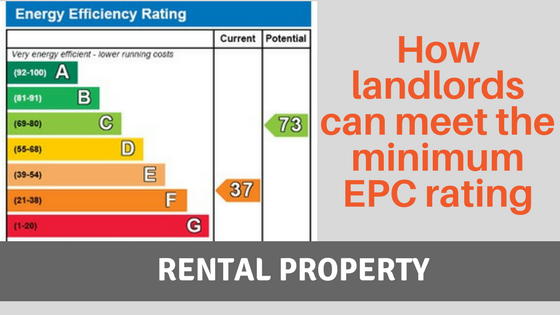What its all about and how to improve your property
What are EPCs?
Energy Performance Certification was introduced in 2007, rating a property’s energy efficiency. By law, all domestic and commercial buildings available to buy or rent in the UK must have one. The scale ranges from an ‘A’ rating being the most energy-efficient, with a ‘G’ rating being the least energy efficient. Each certificate lasts for 10 years.
Currently, domestic private rental properties must meet a minimum level of energy efficiency which is an EPC rating of E. However, beginning 2025, all newly rented properties will be required to have a certification rating of C or above. If the subject property were to be let in the future, improvements would be required, as relayed in the EPC certificate.
How will the proposed changes affect the residential rental sector?
The government has recently proposed new EPC regulations that will change the Minimum Energy Efficiency Standards. These changes will impact the domestic rental property in England and Wales.
The changes are to ensure homes are more energy-efficient and to reduce carbon waste, progressing towards the government’s net-zero targets. Houses in the UK are generally older than in the rest of Europe and considerable improvements would have to be made to improve the energy efficiency of most homes constructed before 1960.
The changes will be phased in, starting with new tenancies from 2025 and then all tenancies from 2028 and apply to all domestic and private rental properties on a lease between 6 months to 99 years.
Having to jump from a minimum E rating to a C can potentially cost property owners thousands. Property owners will be expected to pay for either insulating their properties to retain heat or use other ‘fabric first’ features that can help to improve heating and lighting.
What can property owners do to improve their EPC rating?
Firstly, you will need to prepare, especially if your rating is at E to G, which reflects most of the older housing stock. You can start by making sure that you have undertaken some of the following to improve your EPC rating to the required level (cost estimates provided are for a four bedroom house):
- Change existing lighting to LED light bulbs – Cost around £2 per bulb
- Insulate cavity walls – up to £1,200
- Insulate the loft – DIY up to £300; private up to £1,200
- Improve windows with double or triple glazing – up to £5,000
- Install an energy-efficient boiler – £1,900 to £3,000
- Install thermostatic radiator valves – up to £400
- Use a smart meter – Free from your energy supplier
- Install renewable energy – Solar panels and ground-source heat pumps –From £7,000 to £15,000
Generally investing in renewable energy will really help to improve the EPC rating of a rental property, especially using products such as solar panels and ground-source heat pumps, where possible.
Insulating walls, either internally or externally, for traditional solid wall housing may also be a requirement for those properties with a very low energy rating. This will naturally require a lot of work and preparation, possibly requiring a void period for a property or a temporary reduction in rent owing to the disruption caused. Cost estimates for such insulation vary and a detailed quotation would be required to adequately cover all the alterations required as part of the installation. We are presently researching the best methods possible to insulate, with minimum disruption.
Consultation ends on 30 December 2021
The changes are currently in the consultation stage; meaning new proposals are underway and will remain open until 30th December. Property owners will have until then to submit your questions or views around the new EPC regulations. You can find out more by visiting the government website or by viewing the consultation document.
Signature Surveyors

